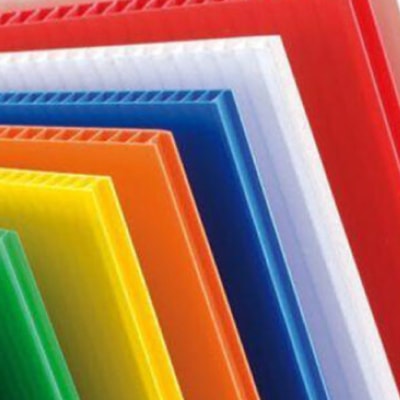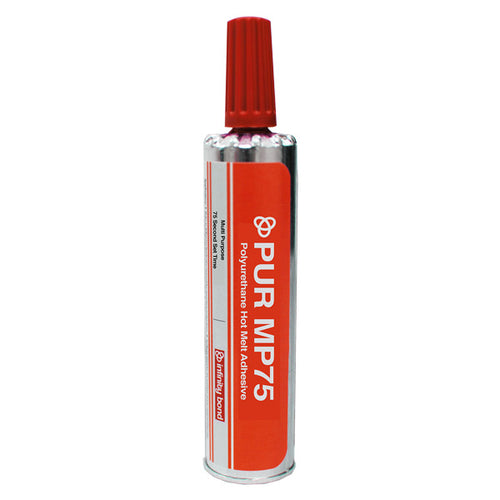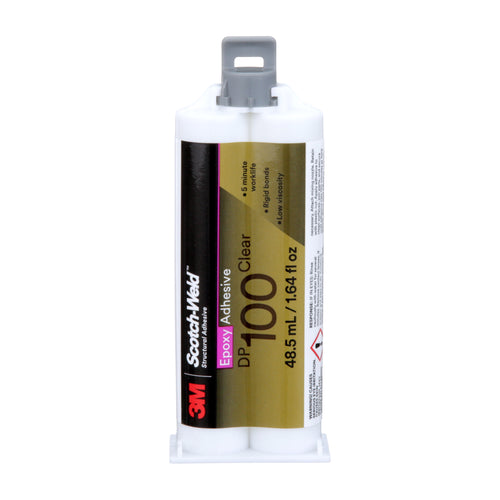Polycarbonate Adhesives
Polycarbonate (PC) is a group of versatile thermoplastics that includes carbonate groups. It is known for its strength, durability, and sometimes transparent appearance. It is lighter than glass but impact resistant. It is also easily shaped and heat resistant. Because of these qualities and the fact that it is virtually unbreakable, it is often used in bulletproof glass, automotive headlights, eyeglass lenses, safety goggles, face shields, camera lenses, blood filters, and much more.
Polycarbonate comes in different grades that can have slightly altered chemical structures for different applications. LEXAN™ polycarbonate is such a popular trademarked brand for polycarbonate sheeting that the term "Lexan" is sometimes used to refer to polycarbonate itself. Also a product that is described as a Lexan glue will probably work for most polycarbonate applications, but always check the technical datasheet to be sure.
Bonding Polycarbonate
Bonding polycarbonate sheets together can be done using different methods like welding, laminating, fusing, and applying an adhesive. The best way to bond polycarbonate will depend on the application, but gluing polycarbonate is a common practice because adhesives are lightweight and relatively easy to use.
The most important part of gluing PC is using a polycarbonate adhesive. Some glues won't be able to adhere to polycarbonate because of its smooth surface and others may even damage the plastic. An adhesive for polycarbonate bonding specifically has been formulated to penetrate the smooth surface without damaging the integrity of the plastic. It is also important to perform the recommended surface preparation for the adhesive to get the best results.
Product Recommendations
-
![Infinity PUR MP75 polyurethane hot melt cartridge]()
Infinity Bond PUR MP75
This PUR is a multi-purpose adhesive that can be used to bond brass as well as many other materials. It can replace nails or screws and has a quick set time of three to four and half minutes. It also has waterproof properties and will not freeze.
-
![Infinity SuperTAC 11 bulk hot melt adhesive]()
Infinity Bond SuperTac 11
These hot glue sticks are great for bonding a wide range of substrates including polycarbonate. They are flexible but also have great resistance to shock, vibrations, and heat. They come in 1/2" and 5/8" sizes.
-
![Infinity Bond Awesome Acrylic Hot Melt Glue Sticks]()
Awesome Acrylic Hot Glue Sticks
These ½ inch glue sticks can form strong, flexible bonds with polycarbonate plastic that can hold up in low temperatures and in demanding environments. They will also dry almost completely clear for a better-looking finished product.
-
![3M 3748 Q glue sticks]()
3M Electronics Glue
These high-temperature glue sticks have a slow set speed and are often used to bond electrical components and plastics. They have non-corrosive properties as well as great low temperature thermal shock properties.
-
![3M Scotch-Weld DP420NS High Performance Non-Sag Epoxy]()
3M DP420NS
This epoxy adhesive from 3M comes in a 2:1 ratio and various cartridge sizes for your convenience. It has a twenty minute work life for adjusting components as well as a non-sag formulation.
-
![Henkel Loctite AA 3979 Light Cure Adhesive]()
Loctite AA 3979
This light cure adhesive is primarily used in medical devices but can be used in a wide range of applications. It fluoresces red under UV light and has a rapid cure.
Surface Preparation & Application Tips
Along with choosing the right polycarbonate glue, you also need to ensure you prep the substrate surface and apply the adhesive correctly.
Surface preparation:
- Clean and degrease the surface with a solvent to remove contaminants.
- In many cases, abrading the surface is recommended so the adhesive has more to grab.
- Clean the surface again to remove remnants left behind from abrasion.
- Let the substrate completely dry before applying the polycarbonate adhesive.
Application and Curing:
- Apply the adhesives according to the manufacturer's instructions, including using the proper equipment and following safety procedures.
- Allow the adhesive to cure as specified by the manufacturer, and do not apply stress to the bond until after it is fully cured.
Other Tips:
- Test the adhesive first before applying it to numerous products or a large surface area. Check the bond strength and appearance.
- Following the recommended storage requirements for the longest shelf life.
- Get rid of expired adhesives as they will not be as effective.
Remember, each glue for polycarbonate can have slightly different properties so always check the product's specific recommendation. Generally, the manufacturer will provide instructions on how to glue polycarbonate substrates correctly including surface preparation requirements, safety procedures, and other instructions for optimum results.
Choose the Right Polycarbonate Adhesive
The best glue for your polycarbonate application will depend on a variety of factors, including the type of polycarbonate, the intended use, the environmental conditions, and your budget. To ensure you get the best polycarbonate adhesives for your needs, contact us for a personalized product recommendation.
Related Products
Frequently Asked Questions
The best adhesive for polycarbonate depends on a variety of factors and will change from one application to another. To ensure you get the best adhesive for your specific requirements, you can speak with one of our adhesive experts.
In some cases, super glue (cyanoacrylate) can work for polycarbonate applications, but you should be careful. Super glues may not be suitable for some load-bearing applications.
Ask a Question
Have questions? Our team of adhesive experts can help. Submit your questions and we'll get you answers right away. We're here to help.















